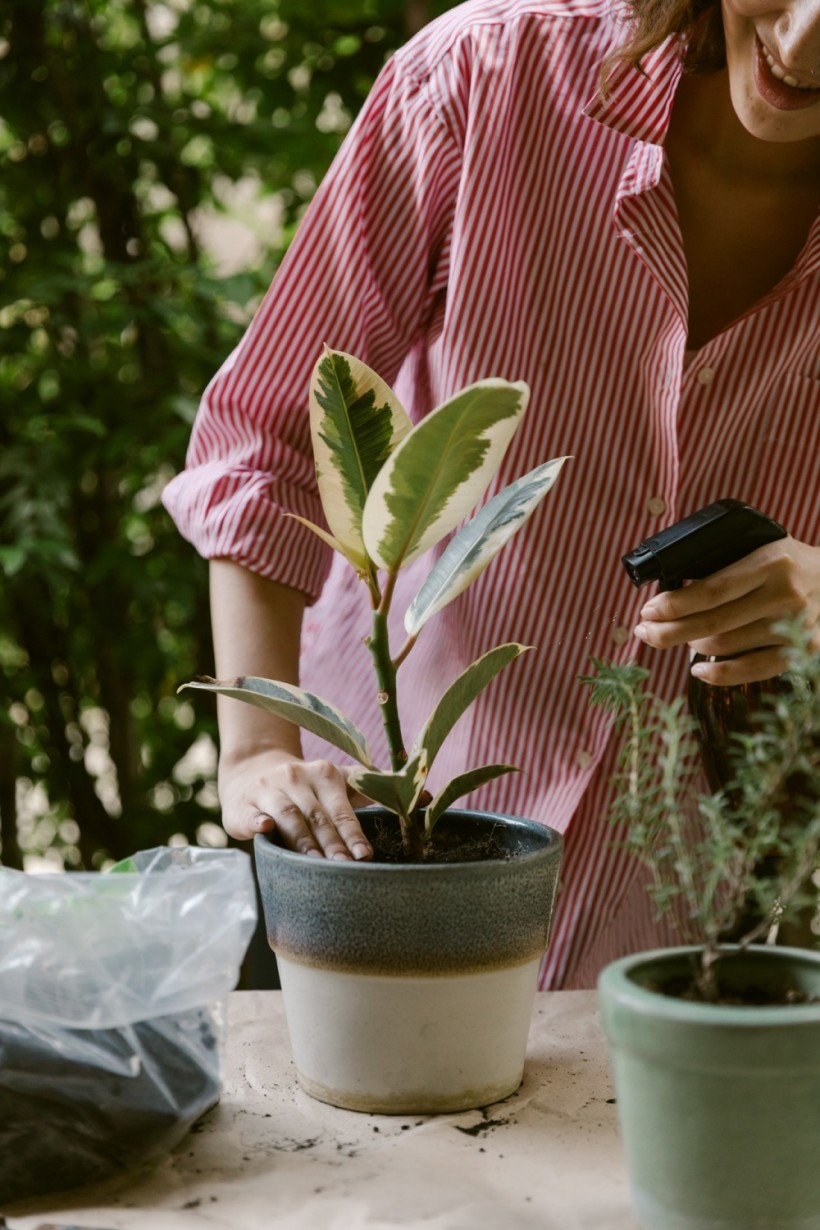Houseplants are not just useful in reducing your stress levels; they also improve your focus. Do you know what more they can do? They keep your air clean. If you want to enhance your house's air quality, you should bring home some air-purifying plants.
Many people think that their AC is enough to act as an air purifier. People install dampers in their HVAC systems to increase their longevity, not to invest in a high-quality air purifier. While that trick works, you should also consider keeping houseplants. As already mentioned, they not only keep the air clean and improve your focus and reduce your stress levels.
Peace Lily
Peace lily can absorb various chemicals from the air. Moreover, it doesn't require a lot of maintenance and looks unique. Make sure you keep the soil moist and provide indirect sunlight. Don't keep the plant in the open or right beside your window from where the sun rays hit the plant directly. Try to keep it within 65 to 75 degrees Fahrenheit and maintain an average humidity of 25 to 49% in your room to keep the plant healthy.
Golden Pothos
The hunter's robe, money plant, and devil's ivy, golden pothos purifies benzene, carbon monoxide, and formaldehyde in the air. It overgrows and doesn't require too much maintenance. Golden pothos are ideal if you want to keep a houseplant for the first time. Just keep it under indirect light and re-water only when the soil dries up. Also, maintain a temperature between 65 and 75 degrees Fahrenheit and keep it away from your pets.
Snake plant
The snake plant requires the least maintenance but absorbs air impurities right from day one. Low to bright indirect sunlight is enough to let this plant grow. Like golden pothos, you should water this plant only after the soil dries. Make sure you maintain an average humidity of 25 to 49% to help the plant increase.
Scarlet Star Bromeliad
According to a recent study at the State University of New York Oswego, plants like Scarlet Star Bromeliad can remove as much as 80% of VOCs from the air in your room in just 12 hours. Scarlet Star Bromeliad loves humid environments. You can keep it in your bathroom so that it can soak the steam once you finish showering. It should, however, get bright indirect sunlight. Also, the average humidity must be more than 50%.
English Ivy
English Ivy looks mesmerizing due to its beautiful leaves. But remember to maintain the nutrient level in its soil and re-water it after the soil dries. That should allow your English Ivy to filter pollutants from the air and to make it breathable. Medium indirect sunlight and average humidity of less than 49% are ideal conditions for this plant to grow.
With so many options available, why not bring home one of these plants and improve your indoor air quality? They are not high-maintenance but would significantly improve your home's air and make it a better place to breathe.
With so many options available, why not bring home one of these plants to improve your indoor air quality? But before you do, it pays to learn how to best take care of them.
Caring for Houseplants in the Winter
Everyone slows down a bit in the winter, and your houseplants aren't an exception. They thrive in the summer because of the heat and light they receive for prolonged hours. But as winter sets in, the weather becomes dry and chilly. The days become shorter. And the plants don't get enough sunlight. All this means you need to tweak your indoor gardening routines to allow the houseplants to survive. Here are some of the best gardening tips that you should incorporate during winter.
1. Use less water
Houseplants don't need a lot of water in the winter. Over-watering the plants can kill them. If you water these plants day and night, you may choke up their air spaces. The roots of plants need air as much as they require nutrients and water. You should always check the water status of the soil before grabbing your water can. Only water the plant if the soil is dry up to 2 inches. Many people just check the surface of the soil. That's not enough. Make a hole and stick your finger inside. If you feel the soil to be moist, don't water the plant right away.
2. Don't use fertilizers
Plants usually remain dormant in winters. They don't need an artificial boost to grow. Therefore, don't go about spreading fertilizers because it won't do any good for your plants.
3. Keep plants near sunlight
You need to do two things to keep your houseplants healthy in winter: keep them clean and place them near the sunlight. Here are a few tips you can follow:
-
Use fresh water and a rag to clean the plants. Alternatively, you can put the plants under your shower to clean them. This would remove not only dust and dirt but also mealy bugs, aphids, spider mites, and scales. Finish the makeover by removing dead leaves to avoid the growth of pests.
-
Keep the windows clean so that light can come in as much as possible. Remember, the sun moves from north to south in winter, so the light through the windows will change over time. Keep moving your plants accordingly so that they receive maximum sunlight and warmth.
-
Keep your plants away from drafts, registers, heaters, and cold windows.
4. Increase humidity
Winter means dealing with dry indoor air. This is why many plants dry up during cold weather. You can combat this by filling saucers with water and putting rocks and pebbles in them. Also, group your houseplants together so that they get increased humidity. You can use a vaporizer or humidifier if you have one.
5. Cut away old growth
This is something that you should start during late winter. Pruning your houseplants will keep them healthy for the next season. Like other plants, houseplants also become leggy due to the low winter light. Pruning them encourages new growth.
It is easy to think that houseplants don't need maintenance, but they do in winter. Keep the above tips in mind while taking care of your houseplants during this chilly season.
© 2024 NatureWorldNews.com All rights reserved. Do not reproduce without permission.
* This is a contributed article and this content does not necessarily represent the views of natureworldnews.com






